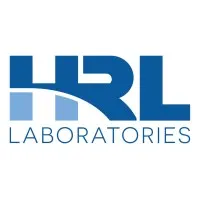Dynamic Materials Discovery and Characterization Scientist at HRL Laboratories
Malibu, California, United States

Skills
Key technologies and capabilities for this role
Questions & Answers
Common questions about this position
What is the salary range for this position?
The base salary range for this full-time position is $145,745 - $186,688 plus bonus and benefits.
Is this a remote position, or is there a specific location requirement?
This information is not specified in the job description.
What are the key required skills for this role?
Key required skills include expert-level laboratory research in light-matter interaction with spectroscopy techniques, excellent theoretical foundation in atomistic modeling and ML/AI for materials development, ability to lead materials discovery platforms, strong knowledge of thin-film fabrication, wet chemistry, and solid-state samples, and generating ideas plus writing funding proposals.
What is the work environment like at HRL Laboratories?
The role involves leading cutting-edge R&D in a highly interdisciplinary environment, working with chemists, physicists, and engineers on programs in optical materials, optics, advanced spectroscopy, and atomistic simulation.
What education and qualifications make a strong candidate for this scientist role?
A PhD in Chemistry, Physics, or Engineering with emphasis on optical material/device development, material modeling, and characterization is required, along with U.S. citizenship and willingness to obtain a security clearance.

HRL Laboratories
Develops cognitive systems for human-machine collaboration
About HRL Laboratories
HRL Laboratories focuses on research and development of advanced cognitive systems and human-machine collaboration, enhancing human cognitive abilities through artificial intelligence (AI) and machine learning (ML). The company develops solutions like the ICArUS project, which improves machine interpretation of information, and the MEMES project, aimed at enhancing human memory. HRL operates on a project-based model, serving clients in defense and high-tech sectors by delivering customized solutions and licensing technologies. The goal is to lead in creating cognitive systems that improve the interaction between humans and machines.